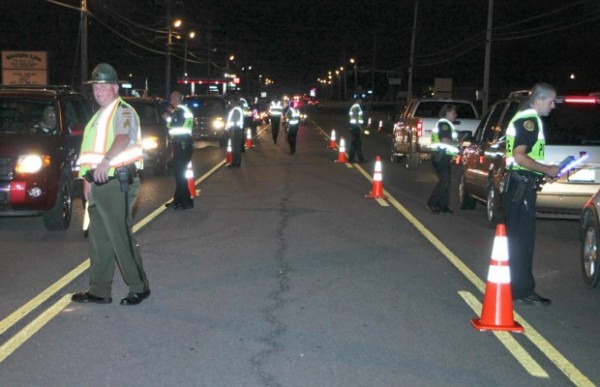THP ‘NO REFUSAL’ CHECKPOINTS THIS WEEKEND IN CUMBERLAND COUNTY – EXPLAINED
 THP will be running “No Refusal” checkpoints this weekend in Cumberland County from Friday at 6pm till midnight Monday night. Some have questioned exactly what ‘No Refusal” means. All states have “implied consent” laws in place, which punish the refusal to take a blood alcohol test, however many states have found these laws insufficient to deter drunk driving. A 2003 NHTSA study found that implied consent laws fail to significantly reduce blood alcohol test refusals. The study also concluded that suspects who avoid testing often avoid serious DUI penalties.
THP will be running “No Refusal” checkpoints this weekend in Cumberland County from Friday at 6pm till midnight Monday night. Some have questioned exactly what ‘No Refusal” means. All states have “implied consent” laws in place, which punish the refusal to take a blood alcohol test, however many states have found these laws insufficient to deter drunk driving. A 2003 NHTSA study found that implied consent laws fail to significantly reduce blood alcohol test refusals. The study also concluded that suspects who avoid testing often avoid serious DUI penalties.
By the time the officer obtained a warrant and secured a blood draw by a licensed health care professional, the suspect might already be sober or at least under the legal limit of 0.08 percent BAC threshold.
Now, officers in many jurisdictions are able to contact on-call judges remotely and have an electronic warrant (PDF, NHTSA) sent directly to their smart phones or computers, solving the time delay issues. These are called no-refusal policies because refusal of a court-ordered BAC test (via warrant) can lead to more serious contempt charges.
You can still refuse a BAC test when no-refusal policies are in effect but you can’t legally refuse a search warrant for a BAC test. Texas police are even authorized to use force to obtain a blood sample with a warrant.
And you don’t have to be at .08 or above to be charged with DUI.
Most people erroneously believe that one can’t be convicted of DUI if one registers below .08% blood alcohol level. Recently, the Tennessee Court of Criminal Appeals affirmed the conviction of a man whose blood alcohol level was only .03%, well below the statutory .08% per se (legal) level.
In this case, the officer testified that the defendant swerved his vehicle three times over the yellow center lines of the road. Then the Defendant approached an intersection and turned left without stopping at the stop sign. After being stopped, the Defendant failed all field sobriety tests and was subsequently arrested.
The Tennessee Court of Criminal Appeals ruled that a person does not have to have a blood alcohol content of .08% or any drugs in his or her system in order to be found guilty of DUI.
The Court considered all of the evidence, including the Defendant’s failure to perform field sobriety tests satisfactorily and the police officer’s observation of driving infractions by the Defendant, was sufficient to uphold the conviction.


